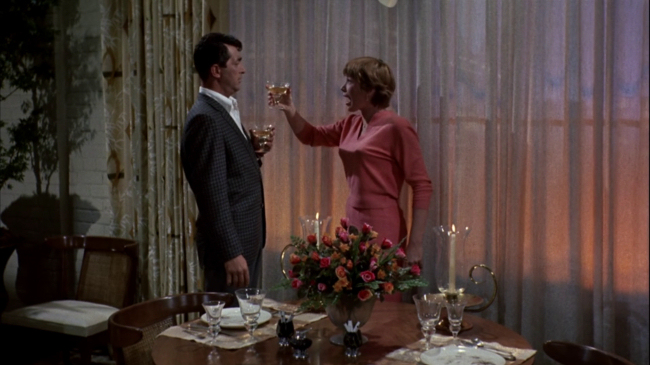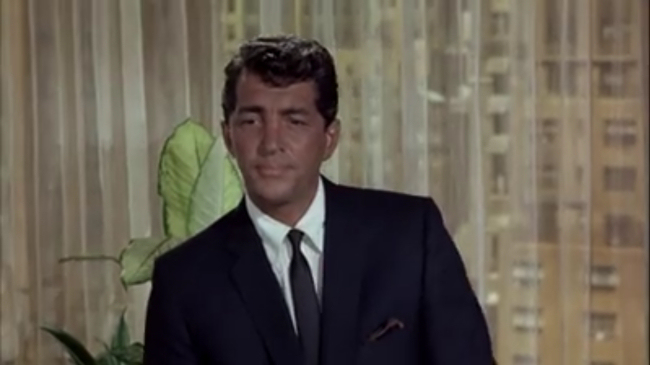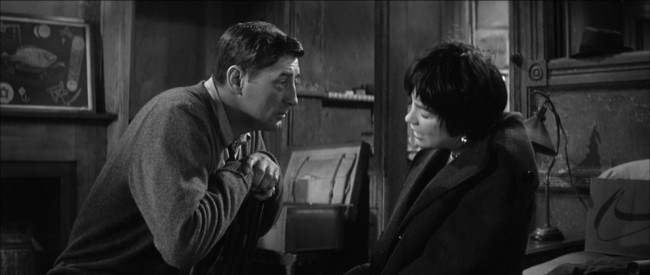
The house detective sees her wearing only a tiny towel, fleeing the hotel room of an influential millionaire who turns out to be dead but who would suspect plucky little Shirley MacLaine of blackmail? But that is the misunderstanding that fuels the comedy in 1961's All in a Night's Work. Not a particularly funny movie--every joke lands with a thud--or an interesting story but MacLaine and Dean Martin have terrific chemistry and the sets, costumes, and cinematography are just divine.

It's all sets, too, for some reason this crew never wanted to go outside. Hitchcock hated shooting outdoors because of how little control it afforded him but even he would step outside now and then when a shot required. Not even for a brief shot on the street or a beach do we leave sound stages here. This is not a Hitchcock movie but you might be forgiven for thinking it is from screenshots because director Joseph Anthony brought on board Hitchcock's costume designer, Edith Head, his art director, Hal Pereira, and two of his set decorators, Sam Comer and Arthur Krams.

The boardroom sets where Martin's Tony Ryder presides over the company he recently inherited from that influential millionaire have this lovely textured, burnished look, the art direction brought to life by the great cinematographer Joseph LaShelle (Laura, River of No Return, The Apartment).

Dino's face also has a textured, burnished quality and together with the fact that he was clearly slightly buzzed for the whole film I couldn't resist having a bourbon while I watched. MacLaine gives a much better performance--the visible layers of emotion in her reactions are credible as the transparent reactions of an innocent young woman. Martin's performance isn't bad exactly but it's mainly charming in how relaxed he is. It reminded me of how Tyrone Power made George Sanders look like he could use a sword in their sword fights through his own skill on his end--MacLaine's performance enhances Martin's.

She also sells the dialogue in three ways--she makes me believe that she honestly doesn't realise anyone suspects her of sleeping with the dead boss for his money but she delivers her lines in a way that we credibly believe other people think that. And she builds her rapport with Martin all at the same time.

I can't recommend the direction, the plot, or the dialogue but this is a damn fine thing to rest your eyeballs on.







